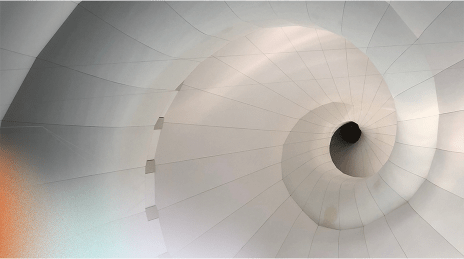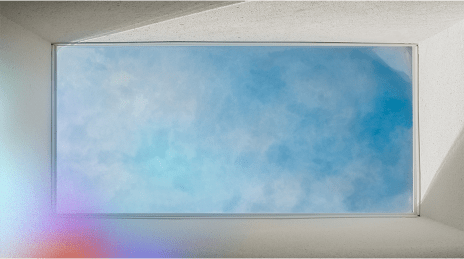With mainnet launch on the horizon, Coda Protocol accepts its second cohort into the Genesis token program to ensure high decentralization upon mainnet launch.
San Francisco, CA August 13, 2020 – Coda Protocol, a lightweight framework for the Web 3.0, announces the acceptance of its second cohort of participants in its Genesis token program. Genesis is a token program that prepares participants to become the network’s first block producers and ensures high decentralization upon mainnet launch.
Coda token grants are being distributed to Genesis founding members (GFM), pulling from the group of participants engaging in testnet challenges that are designed to contribute to greater network resilience. Since the launch of Genesis, the Coda team has received over 3500 applicants wanting to join the program. Cohort 2 will join the 40 founding members admitted to Cohort 1. These node operators, developers, community builders, translators, and Coda supporters hail from all over the globe.
Global participation and geographic diversity are elements that factor heavily into Coda’s view of true decentralization. Coda’s community has rallied to translate documents into over 15 languages. 20 technical ambassadors will also soon be announced across key geographic regions.
Evan Shapiro, CEO and Co-Founder of O(1) Labs, the team behind Coda Protocol, articulated, “The Genesis token program is designed to ensure block producers are operationally prepared for mainnet. We couldn’t be more pleased to have such an outpouring of interest from people hailing from over 180 different countries, and we are using this momentum to continue strengthening the protocol and ensure a robust, highly decentralized network at mainnet.”
Hailing from Korea, jjang96, a GFM and Founder of 0base.vc articulated that, “Of all the blockchains I intend to run, I’m prioritizing Coda because of its use of zero knowledge proofs, the many possible use cases enabled by a small blockchain, and the excellent tooling and community support.”
“Coda is the first network I’ve run a node on, and I have no devops or coding background. I always have the feeling that no one is being left behind, which can be a quite unique thing within a crypto community,” said German English teacher and GFM, Paddyson.
Unlike other third-generation protocols offering 1% or less in token distributions to their communities, Coda is setting aside up to 6.6% of tokens for Genesis founding members. Additionally, participants need not wait until some indefinite point in the future to receive their tokens, as Coda’s mainnet will be released this year. By harnessing recursive zk-SNARKs, Coda block producers can rapidly share proof of the correct blockchain state across the network and easily update the proof as new transactions occur. This breakthrough application of zero-knowledge proofs is what allows Coda to offer scalability to thousands of transactions per second, millions of users, and years of transaction history without sacrificing security.
“Coda is the forefront of real-world systems built on ZK proofs. Testnet is simple, straightforward, and with great documentation and tooling,” said Bitcoin cash developer and GFM, tcrypt.
Finally, Natalia, a GFM from Russia shared that, “Coda takes some of the problems that Bitcoin has been struggling with for over five years, mainly scaling and decentralization, and turns them on their ear in a unique way by using cutting edge tech. This, combined with how easy it is, even for a non-technical user like me, plus how friendly and helpful the community is, facilitates a great experience!”
Apply to join Genesis: https://codaprotocol.com/genesis
For media inquiries, please contact Kili Wall at (310) 260-7901 or Kili(at)MelrosePR(dot)com
About Coda Protocol
Coda Protocol is being incubated by O(1) Labs, the leader in zk-SNARKs and verifiable computation. Coda Protocol, the world’s lightest blockchain, provides a foundation for the decentralized digital economy (Web 3.0), by affording all participants fully P2P, permissionless access to the chain, from any device. By utilizing recursive zk-SNARKs, the Coda blockchain always stays the same size—about 20 kilobytes (the size of a few tweets). Recursive zk-SNARKs allow nodes to rapidly share and update proof of the correct blockchain state across the network. This breakthrough application of zk-SNARKs solves the issues of scalability and high barrier to entry for nodes that have plagued legacy blockchains to-date. By making it easier for nodes to participate, Coda improves decentralization and therefore security of the network. The Coda blockchain can be easily accessed from any device, including phones and browsers, and can be seamlessly integrated into new decentralized applications (dapps).
About Mina Protocol
Mina is the world’s lightest blockchain, powered by participants. Rather than apply brute computing force, Mina uses advanced cryptography and recursive zk-SNARKs to design an entire blockchain that is about 22kb, the size of a couple of tweets. It is the first layer-1 to enable efficient implementation and easy programmability of zero knowledge smart contracts (zkApps). With its unique privacy features and ability to connect to any website, Mina is building a private gateway between the real world and crypto—and the secure, democratic future we all deserve.



